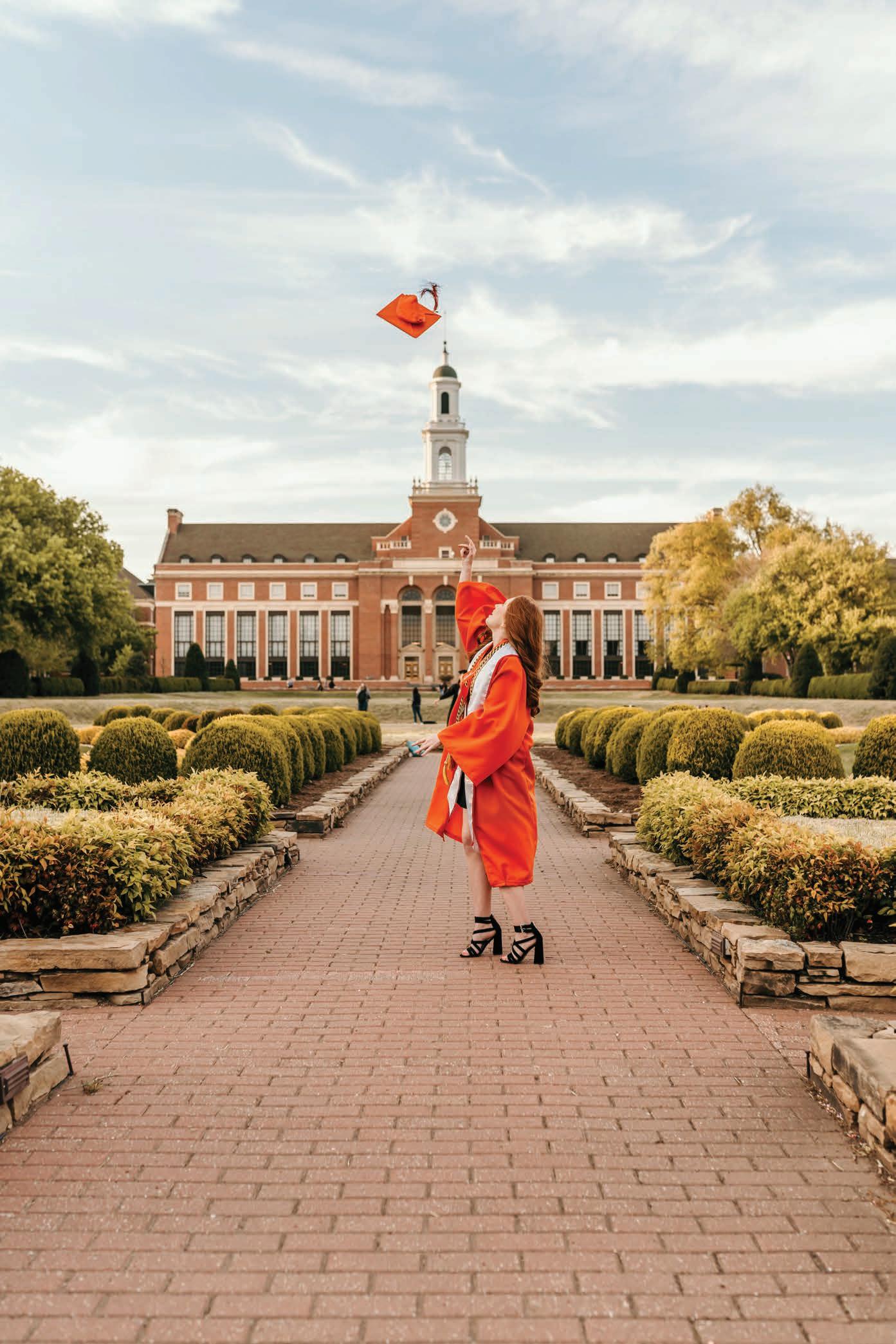“The population of farmers and the population of Harmon and Tillman counties have very aging populations,” Muller said. “It’s hard for them to try and invest in technology, such as notill drills and big sprayers, late in their careers and having to constantly pay those bills. “We interacted with them and tailored technologies to improve their productivity and soil health, which could be doable for them,” Muller said. Muller said community involvement in the Rural Renewal Initiative is a key in making it successful. “As long as people are looking for ways to give back in their communities and being open-minded to working for the betterment of the community, now and in the future, that’s the biggest thing we could ask for,” Muller said. Robinson said people can support the cause multiple ways, but the main way is to be involved in the community. Whether participating in round-table discussions or talking at the local coffee shop, rural Oklahomans’ input matters, he said. “We want to help in every way possible, but we are somewhat limited in terms of dollar bills,” Robinson said. “The more money we add, the more work we can potentially do.” Robinson said funding is needed for the next round of Rural Scholars. Counties wanting to host a scholar can donate money and time, Robinson said. The Rural Scholars received a stipend for their efforts during the summer, and the communities provided housing for the students. “I was raised in a rural place where everybody had to work together and lock arms and do what they could for the betterment of the community for everybody,” Robinson said. “We’re all in it together.”
REBEKAH NASH SHELBY COUNTY ILLINOIS
Justin (left) and Mellissa Crosswhite came to OSU in 2016. Photo by Matt Staples.
MOVING CLOSER TO HOME When Justin and Mellissa Crosswhite saw the chance to move closer to family, they knew they had to jump on the opportunity. The two are instructors within the Oklahoma State University Department of Animal and Food Sciences, where they teach and advise the freshmen and sophomore students in the department. “I am an Oklahoma native and graduated from OSU,” Justin Crosswhite said. “I moved to the University of Florida to get my master’s degree.” Mellissa Crosswhite was also at the University of Florida finishing her bachelor’s degree, he said. “We have been in the same building for most of our relationship,” he said. “It would be more of an adjustment for us if we didn’t work together and see each other all day.” Although they work next door to one another, the Crosswhites consider this normal. “We definitely have times where we are working on totally different things,” Mellissa Crosswhite said. “We have similar duties, but we teach different classes. Justin is more on the meat science side of things, and I am a reproductive physiologist.” Both husband and wife advise different clubs and have different obligations. These differences keep a certain amount of their jobs separate, but they do bounce ideas off of each other, she said. “There is more of an investment, which leads to better communication when we talk about work at home,” Justin Crosswhite said. “We know what the other person is talking about and who they are talking about. We can relate to each other and understand most situations the other is experiencing.” They also ride to work together most days when they do not have to advise a club meeting or have other work obligations, he said. “We work well together,” Mellissa Crosswhite said. “It seems like people refer to us as the Crosswhites more than they refer to us as individuals. “I don’t know that this could work for everyone, but it works for us,” she said. “We stay busy and lead separate lives, but at the end of the day we are there for each other.” — CC
VOLUME 22 NUMBER 2 | 67


























